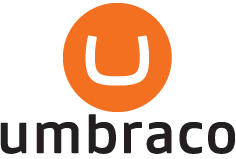Whether you’re starting a new website, or revitalizing an old one, picking the right content management system (CMS) for your website is one of the most important decisions you’ll make; not for your users, but for your own sake. Choosing the appropriate CMS for your website can be the difference between a website that you can freely update, and one that requires frequent phone calls to your web developer – and the bill for their time!
What is a CMS?
A CMS, or Content Management System, is, appropriately enough, a system for managing your content. All CMS systems contain a few common elements:
- An “Administration” area of the website;
- The ability to add, edit, and delete content; and
- Tools for adding additional customization to your website.
Some CMS’s will allow for additional features, while others will give you the minimum you’ll need to work with your website. Here are several popular content management systems, along with some pros and cons.
WordPress
![]() Pros
Pros
- Simple to use
- Robust plugin library
- Backwards-compatible
![]() Cons
Cons
-
- Requires a good theme
- Not good at automated tasks
- Bad at data relationships
WordPress, a PHP-based content management system, was originally released in 2003, with 5 major releases and hundreds of contributors. Although originally designed as blogging software, WordPress has been expanded to cover almost all types of websites, composing approximately 35% of the web. WordPress covers many diverse websites, from eCommerce to news to portfolio, and everything in between.
WordPress is a great choice of CMS for most websites; it offers a lot of customization with an easy-to-use administration interface, and plugins to extend its functionality and fill almost any niche. Because of its popularity, it’s possible to get themes that match the look and feel that you are going for. If you can’t find a theme that meets your vision, it’s simple to develop a custom theme that meets all of your requirements.
There are downsides to WordPress, however. The more complicated and business-specific the tasks your website needs to do, the less WordPress will be able to meet your needs. In particular, WordPress has difficulties with automated, long-running tasks that need to be run timely and efficiently. Likewise, WordPress is efficient at categorizing content, as long as the connections between data are, at most, 2-way. Joining content to a 3-way relationship is much more difficult, and not nearly as efficient.
If you think a WordPress site is what you’re looking for, contact us.

Umbraco
![]() Pros
Pros
- Content-driven design
- Easy to debug
- Fast
![]() Cons
Cons
- Requires Microsoft IIS Hosting
- Written in a less popular language
- Bad at blogging
Umbraco has been around for over 20 years, with a community of developers working on its upkeep since 2004. Unlike the other CMS’s listed, Umbraco is written in Microsoft.NET, which has both its positives and negatives. Umbraco is very heavily used in the European sector, but doesn’t have as much groundwork in North America.
Umbraco is a very good system for a large number of websites, striking a good midpoint between customizability and ease of use. Content is tied fairly heavily to the template, making it fairly easy to design a layout specific to a single page. Being written in Microsoft’s .NET framework allows for easy development for custom work.
Because of its reliance on .NET, Umbraco is harder to host. Most web hosts will only offer Apache hosting, which, by default, will not support .NET. Due to not sharing a language with more popular CMS’s, it is also harder to find developers who are capable of supporting an Umbraco installation, whether through plugins or through theme development. Finally, because of the page-driven nature of the application, it’s surprisingly hard to get a robust blog platform written in Umbraco.

Drupal
![]() Pros
Pros
- Extremely modular and customizable
- Strong data-driven design
- Large number of community modules
![]() Cons
Cons
- Very steep learning curve
- Not backwards-compatible
- Customization requires more programming experience
Drupal was originally developed in 2003, giving it as much development history as WordPress. Although at one point Drupal was designed as forum software, it has since expanded to cover a large range of websites, being used on government, university, and technology websites.
If you’re considering a new website, Drupal can be a good choice under certain circumstances. Custom workflows in particular are a strength for Drupal; it’s very easy to build data-driven applications with a web interface using Drupal. In general, if you want an application that lives on the web, Drupal will accomplish most, if not all, of your needs.
Drupal is not without its weaknesses, though; in particular, Drupal has a steep learning curve for both developers and users. It isn’t unusual for a Drupal site to have its content adjusted by a developer, due to the degree of technical know-how expected by the administration of the website. Drupal also has a difficult upgrade process, with very few modules being compatible between major versions.
Often, if you’re considering a Drupal website, you may be better served with custom development instead.
Custom Development
![]() Pros
Pros
- Get exactly what you want
![]() Cons
Cons
- Longer development cycle
- Less “after the fact” customization
- Harder to support
Custom Development, although not really a CMS, per se, is still worth considering when comparing CMS’s. A site that has custom development is free to do exactly what you need, without all the baggage that comes with a standard CMS system. Oftentimes, it is the only way to get a product that fulfills your needs.
On the other side of things, Custom Development is going to be expensive, both in time and in money. Unlike a standard CMS install, Custom Development is going to require extensive testing and development, and may result in less freedom to customize after the fact. However, when you need Custom Development, there really is no substitute.
Just the Tip of the Iceberg
Although there are many other great CMS’s, we don’t have space to cover them all. Want to hear more about a specific CMS?

